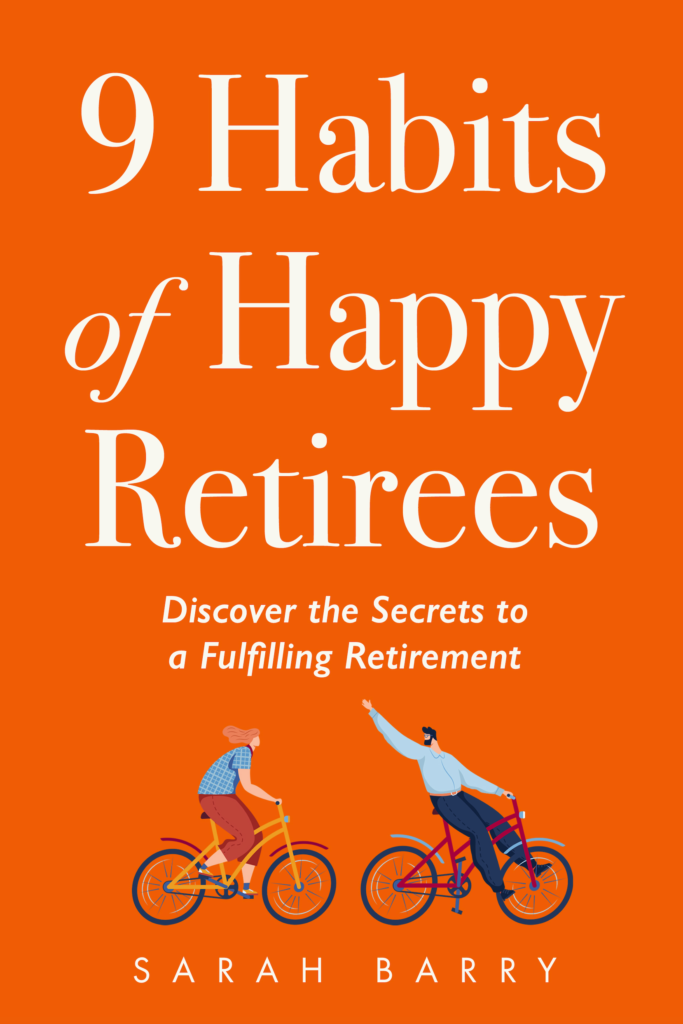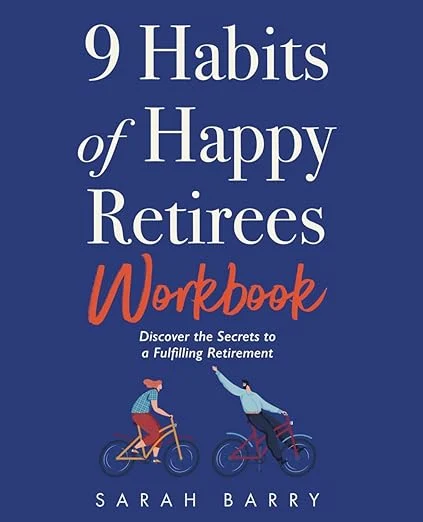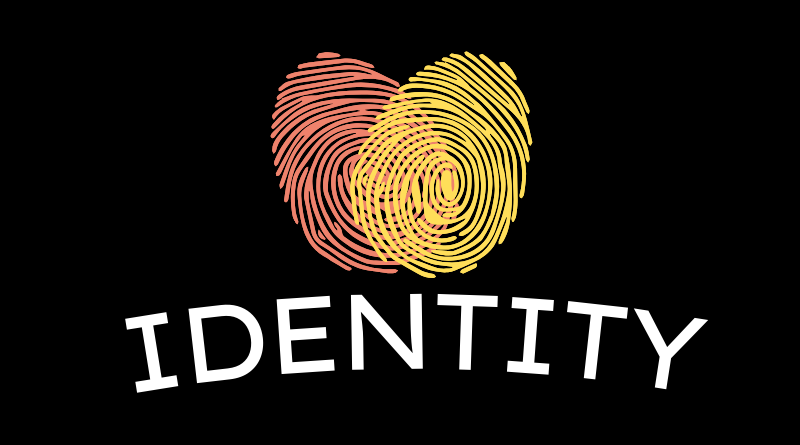You Are More Than Your Job Title
Exploring identity and purpose beyond your career in retirement
More Than a Label
For decades, your name may have followed a title—Manager, Nurse, Director, Teacher, Executive, Engineer. That title wasn’t just part of your role at work; it likely shaped your social identity, your routine, your sense of purpose. It may have given you confidence, structure, and pride.
So it’s no wonder that when retirement begins, many people feel unmoored—disoriented, invisible, or unsure of who they are without that title.
But here’s a truth I remind every coaching client: you are not your job title. You never were.
Yes, work may have shaped you—but it never defined your whole self. And now, in retirement, you have a unique opportunity to rediscover the parts of you that were always there beneath the surface. The creative spark. The mentor. The nurturer. The adventurer. The storyteller.
Retirement is not the end of your usefulness. It’s the beginning of living life from the inside out, instead of the outside in.
Why We Tie Our Identity to Work
It’s completely natural to feel tethered to your job identity. In many cultures, especially those that emphasize achievement and productivity, work becomes our shorthand. It answers that ever-present question: “So, what do you do?”
Work gives us more than a paycheck. It provides:
- Structure: predictable rhythms, meetings, goals, deadlines.
- Status: validation from titles, accomplishments, and expertise.
- Community: built-in interactions, collaborations, and team dynamics.
- Purpose: a sense of usefulness and momentum.
So when that structure falls away, it can feel like part of you disappears too.
But the truth is, everything essential about you—your character, wisdom, humor, heart—remains.
Retirement is a moment to reclaim identity not from a business card, but from the core of who you are.
Common Challenges in the Identity Shift
Transitioning into retirement can feel like both a release and a reckoning. Here are a few of the most common identity-related challenges I hear in coaching sessions—and how to gently navigate them.
Loss of Structure
Without the routine of workdays and meetings, your days may feel aimless. Even cherished activities can start to blur into one another when there’s no rhythm to frame them.
The solution? Intentional routine.
Not to recreate work stress—but to give shape to your days. Morning walks. Midday creativity. Weekly commitments. Time for spontaneity and structure helps you feel grounded.
Loss of Recognition
Work often brought regular feedback—performance reviews, appreciation from colleagues, even casual affirmation in conversation. In retirement, that applause often quiets.
But recognition doesn’t have to disappear—it just changes form.
You may now feel seen in new ways: through your relationships, your community involvement, your kindness, your wisdom. Start noticing where appreciation shows up now, even if it’s softer or more personal.
Loss of Purpose
Purpose doesn’t retire. But it often needs to be redefined.
At first, it may feel like your compass has gone missing. But this is an invitation to explore what matters to you, outside of productivity.
You might find purpose in small daily rituals. In nurturing others. In mentoring. In creating. In simply showing up with care and curiosity.
Social Shifts
Your professional life may have offered daily interactions without effort. In retirement, connection takes more intention—but it’s no less vital.
Consider joining clubs, volunteering, taking classes, or hosting casual meetups. These connections won’t just replace old ones—they’ll help shape your next identity as someone still vibrant, engaged, and growing.
What the Research Says
Psychologists have long studied how identity and well-being shift in retirement. One consistent finding is that those with flexible, multidimensional identities adjust more positively than those who tied their entire sense of self to their job.
Here’s what the research shows:
- Identity Diversification Helps
People who see themselves through multiple lenses—parent, traveler, artist, caregiver, learner, community member—are more resilient. When one role changes (like “employee”), others can step forward.
- Social Engagement Sustains Health
Regular social interaction supports emotional and cognitive health. Whether through clubs, community involvement, or volunteering, being engaged keeps your sense of identity alive and evolving.
- Retirement Reinvention Is Normal
According to studies from Age Wave and Merrill Lynch, 70% of retirees see retirement as a time of reinvention, not retreat. That’s not the exception—that’s the new normal.
A Real-Life Story: Joan’s Journey
Joan, a retired high school teacher, shared this with me in a coaching session:
“I wasn’t just a teacher—I was teaching. When it ended, I didn’t know who I was.”
She missed her classroom, the energy of her students, the sense of being needed. After six quiet months, she joined a local gardening group. Soon, she found herself teaching again—this time showing teenagers how to plant, harvest, and cook healthy meals.
“I realized,” she said, “I hadn’t lost my purpose. I just needed a new way to live it.”
Joan’s identity didn’t disappear. It shifted. And now, it fits this chapter of her life even better.
Reconnecting with Who You Are (Beyond Your Title)
Retirement invites you to reconnect with yourself—not as a worker, but as a human being. Here’s how to begin:
Reflect on the Roles You’ve Played
Think beyond your job. You’ve been a listener, guide, creator, advocate, helper, dreamer. Which roles do you want to nurture now?
Identify Your Core Values
What matters to you at this stage of life? Peace? Curiosity? Connection? Let your daily choices reflect those values. That’s where identity starts to feel authentic again.
Pay Attention to Joy
What brings lightness to your day? What gives you a quiet sense of “this is me”? Those moments hold clues to who you’re becoming.
Give Yourself Permission to Try
Explore hobbies. Join conversations. Volunteer. Rest. Reflect. You don’t need a blueprint. You just need a willingness to evolve—and the grace to go slowly.
Try This: “Beyond the Title” Reflection
In your journal, complete the following:
- My name is ____________
- I used to be a(n) ____________ (your job title)
- But I’ve always been someone who ____________
- In this next chapter, I want to become someone who ____________
- I feel most like myself when I ____________
Let these reflections guide your next steps.
From Doing to Being
This chapter of life asks a different question—not “What do you do?” but “Who are you becoming?”
You don’t have to prove your worth with output anymore.
You don’t need to earn rest, joy, or peace.
You are allowed to simply be.
To be thoughtful. Curious. Restful. Playful. Creative. Still.
And in that being, you’ll discover something powerful:
You are whole. And you always were.
Final Thoughts
Letting go of a job title doesn’t mean letting go of your identity. It means making space to discover the fuller, truer version of yourself—one that was always there beneath the title.
So take your time. Be gentle. Ask new questions. Explore new answers.
And above all—trust that the best parts of your story may be just beginning.
Want help designing a retirement that reflects your values and purpose?
Check out 9 Habits of Happy Retirees and the companion workbook—available now on Amazon. These practical, encouraging guides will help you shape a life that feels true to who you are becoming.

Retirement Re-defined
“9 Habits of Happy Retirees” is your guidebook to crafting a retirement lifestyle that goes beyond financial security, focusing on the habits that lead to true happiness and contentment in your golden years.

The Essential Workbook
This workbook is designed to complement the book’s theoretical foundation, it offers a hands-on approach to improving your mental, emotional, and social well-being in retirement.

